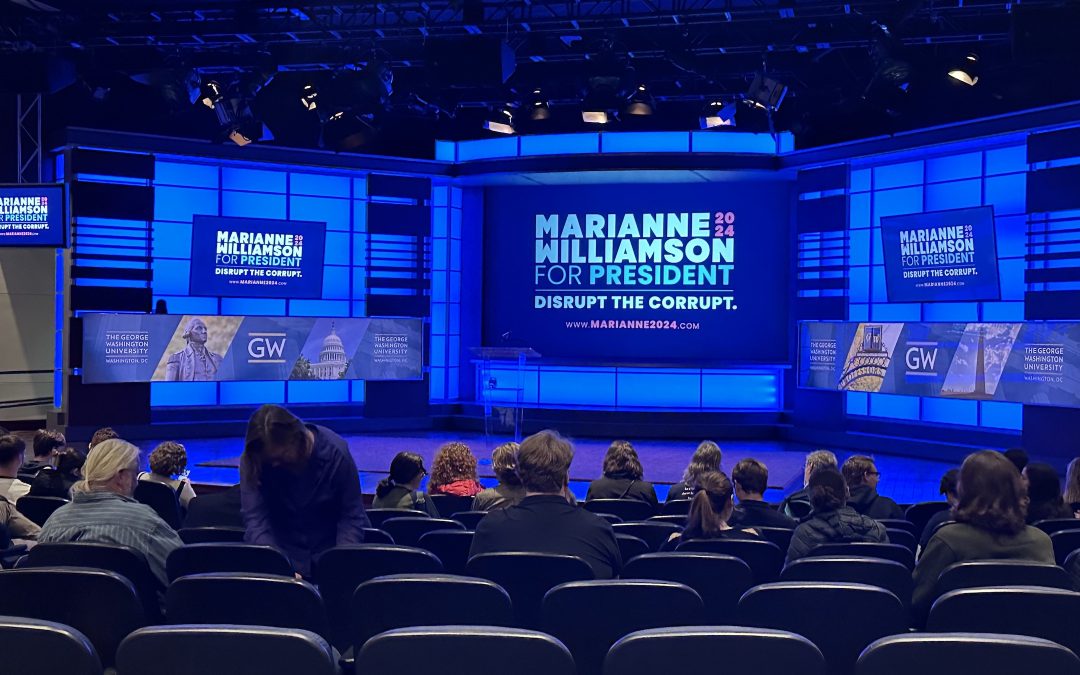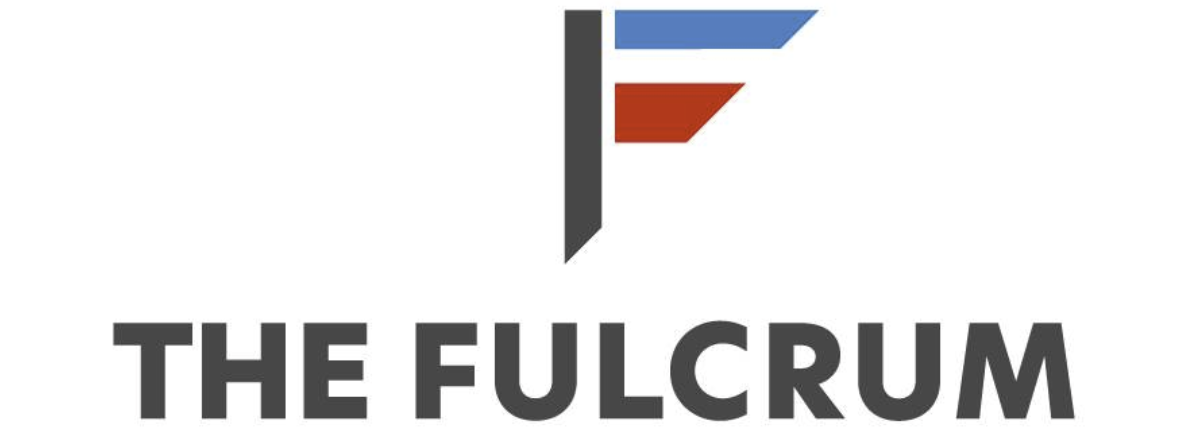WASHINGTON – No incumbent president running for re-election has ever lost in a primary, but that did not stop some college-aged voters from filing into an auditorium on a mid-October evening to attend a campaign event for a Democratic candidate other than Joe Biden.
Long-shot candidate Marianne Williamson ran a failed congressional campaign in California in 2014 and made a short-lived run for president in 2020. This time around, she is running on a platform of liberal economic reforms and is currently polling under 10 percent. However, despite her low ratings, her status as only one of four challengers to President Biden drew the attention of some voters.
“I really respected the things that she said, you know, standing up to the candidates in the previous election,” said Cooper Uncle, 19, who was too young to vote in 2020. Not excited about a potential rematch between Biden and former President Donald Trump, he attended the event at George Washington University in Washington, D.C., to be more informed about his options.
While Williamson faces extremely long odds and failed to pack the room at George Washington, her candidacy reflects voters’ growing drift away from traditional, party-centric candidates and frustration with their current options.
“When the chaos happened in 2020, I was motivated to vote because I saw the election as the lesser of two evils,” said Kaitlyn Brown, 21, another attendee. “I’m hoping that maybe I can actually see a good candidate.”
With a year until the election, recent polling found 67 percent of Democratic and Democratic-leaning registered voters want someone other than Biden to be the party’s nominee in 2024. Despite this, Biden lacks any serious challengers, leaving many young Americans – one of the Democrats’ most important blocs of voters – feeling unenthused.
“I think the Democratic Party needs to pivot and we need some more directions to go in with some younger candidates,” said Uncle. Other than Biden and Williamson, the primary contest includes Rep. Dean Phillips and media executive Cenk Uygur.
Voters under the age of 30 have been crucial to Democrats in the past and to Biden’s win in 2020, according to experts. In 2008, a higher percentage of young people, 66 percent of voters under 30, cast their ballots for Barack Obama than any other age group. In 2020, youth voter turnout increased in every state except Louisiana where it remained flat.
While young Americans have not always voted for Democrats in large numbers, their support for the party has been especially prominent in the past few decades, said Abby Kiesa, deputy director of Tufts University’s Center for Information & Research on Civic Learning and Engagement, a nonpartisan research organization focused on youth civic engagement. Young people’s activism on issues like gun violence, racial justice and climate change has energized them to vote for more left-leaning politicians.
“We’ve seen the White House take action on some of these issues as well,” said Kiesa, speaking to the importance of young voters.
However, this same age group has also begun to drift away from registering with political parties. Nearly two in five voters younger than 30 identify as Independent or “something else,” making them the largest bloc of voters to not identify with Democrats or Republicans.
“There’s a huge desire for some new expressions of politics. But it’s a totally monopolized business. It’s very hard to break in. It’s very hard to create alternatives. It’s a closed system,” said John Opdyke, president of Open Primaries,a nonprofit organization focused on enacting open primaries in the United States.
However, Kiesa said it may be a mistake to judge young voters’ role in the upcoming election by their enthusiasm for the presidential candidate. She predicts that young people will not be kept away from the polls because there are other issues drawing them there.
“I think it’s a reasonable thing for anyone of any age to be frustrated with politics in the United States right now,” she said. “During the 2022 election, there was all of this talk about young people’s approval rating of Biden and what effect that would have on turnout and everything, and turnout was fine.”
Fifty-seven percent of young voters said they are motivated to vote in the 2024 election and 53 percent say that they would consider a third-party candidate.
Kiesa points to high turnout among young voters in the past few elections as a hopeful sign.
“Parties have not been good shepherds of democracy, so solely focusing on parties to do turnout work and registration work is not the way that we’re going to reach full participation or more inclusive participation,” she said.
For voters like Becca Delbos, 19, casting her vote for any Democrat is better than not voting at all.
“I can’t really imagine myself in a situation where I wouldn’t vote for the Democratic candidate on the ballot,” she said. “That doesn’t mean I’d be happy to vote for Biden, but I think it’s important to vote either way.”


